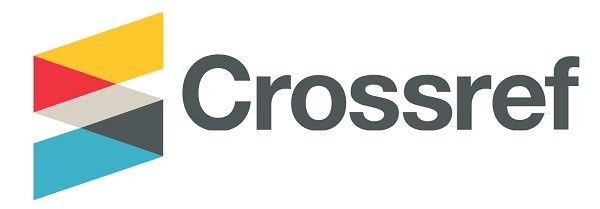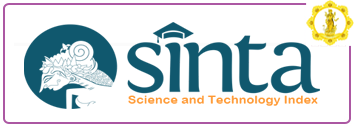Peranan Sentral Guru Agama Hindu dalam Pencapaian Tujuan Pendidikan Nasional di Indonesia dan Pembangunan Karakter Bangsa yang Berakhlak Mulia, Jujur, Terampil, Berhati Suci dan Bersih Lahir Batin
DOI:
https://doi.org/10.25078/jpm.v1i1.39Keywords:
central role pf hindu teacher, national goal of education, character building, honest, skilled, pureAbstract
The teachers of Hindu religion classes play central role in the effort to reach the goal
of the national education as well as to build the characters that include honesty, skillfullness,
clean and good-heartedness, as described in the national standard of education regulation
No 20/2003 in which it states that the curriculum has to provide religious education (Pasal
37 UU Sisdiknas). The government attention to the education is implemented too by the
issue of the Regulation on Teachers and Lecturers which states that teachers are professional
educators with main duty to educate, teach, guide, train, and evaluate the students in the
formal elementary, secondary, and high schools (UU RI No. 14/2005) Purwanto
(2004:10).Education is the intentional enlightening from the adult to the younger ones in
relation to their development in order to make them useful for themselves and in the society”
The Indonesian national education systemas stated in UU No.2/1989 Bab, II, pasal 4,
states that the goal of the education is to develop a complete Indonesia people who are
religious, good in their characters, have good knowledge and skills, healthy physically
and mentally, independent, responsible for the society and nation. In line with that, the
Hindu teachers should refer to the Vedic teachings and consider the physical, psychological,
and social environments of study, the life as students (Sisya/Brahmacari), their roles (Acarya),
the curriculum, the mteaching methods, as well as the goal of the education. These all
should be centered on
• teaching with the emphasis on directing and motivating to reach the character building
• facilitating that through learning experience
• helping to develop attitudes, values, and self adaptation
At schools teachers should commit themselves to be 1) role models, 2) inspirators, 3)
motivators, 4) regulator, 5) evaluator besides having good vision. Without these all, the
goal of education will fail.
Downloads
References
Abdurahman dan Bintoro, 2000. Pembelajaran Kooporatif (Cooperatif Learning) Jakarta: Rineka Cipta
Anwar Mohc Idochi. 1994. Kepemimpinan dalam Proses Belajar mengajar. Bandung: Angkasa.
Buhri, 2007. Model Pembelajaran. Departemen Agama Republik Indonesia, Balai Diklat Keagamaan Denpasar.
Djamarah, Syaiful Basri, 2002. Psikologi Belajar. Malang: Universitas Negeri Malang.
Depdiknas. 2003. Manajemen Peningkatan Mutu Bebasis Sekolah. Depdiknas, Dirjen Dikdasmen
Hidayatulloh, M. Furqon, tt. Guru Sejati: Membangun Insan Berkarakter Kuat dan Cerdas. Surakarta: Yuma Pustaka.
Harjanto , 2006. Perencanaan Pengajaran. Jakarta: Rineka Cipta.
Kunandar, 2007. Guru Profesional: Implementasi Kurikuluma Tingkat Satuan Pendidikan (KTSP) dan Sukses dalam Sertifikasi Guru. Jakarta: Raja Grafindo Persada.
Ma’mur Asmani, Jamal, 2011. Tips Menjadi Guru Inspiratif, Kreatif, dan Inovatif. Yogyakarta: Diva Press.
Mar’arif, Syamsul, M.Ag. 2011. Guru Profesional Harapan dan Kenyataan. Semarang: Walisongo.
Mulyasa, 2008. Standar Kompetensi dan Sertifikasi Guru. Bandung: PT Remaja Rosdakarya.
Nurhadi Et El, 2003. Pembelajaran Kontekstual dan Penerapan dalam KBK. Malang Universitas Negeri malang.
Paraba, Hadirja. 1999. Wawasan Tenaga Guru dan Pembinaan Pendidikan Agama Islam. Jakarta: Friska Agung Insani.
Pudja, G. 2003. Bhagawad Gita (Pancama Veda). Surabaya: Paramita
Surya, H. Mohammad. 2002. Organisasi profesi, kode etik dan Dewan Kehormatan Guru. Jakarta: Aneka Ilmu.
Trianto, 2007. Model Pembelajaran Inovatif. Prestasi: Jakarta.
Tiaar, 2002. Membenahi Pendidikan Nasional. Jakarta: PT Rineka Cipta.
Undang – Undang Sistem Pendidikan Nasional, UU No. 20 Tahun 2003 Beserta Penjelasannya. Yogyakarta: Media Abadi.
Undang – Undang RI. No 14 Tahun 2005 Tentang Guru dan Dosen. Yogyakarta: Pustaka Yustisia
UU SISDIKNAS, NO 20 Tahun 2003, Jakarta, Sihar Grafika 2003









